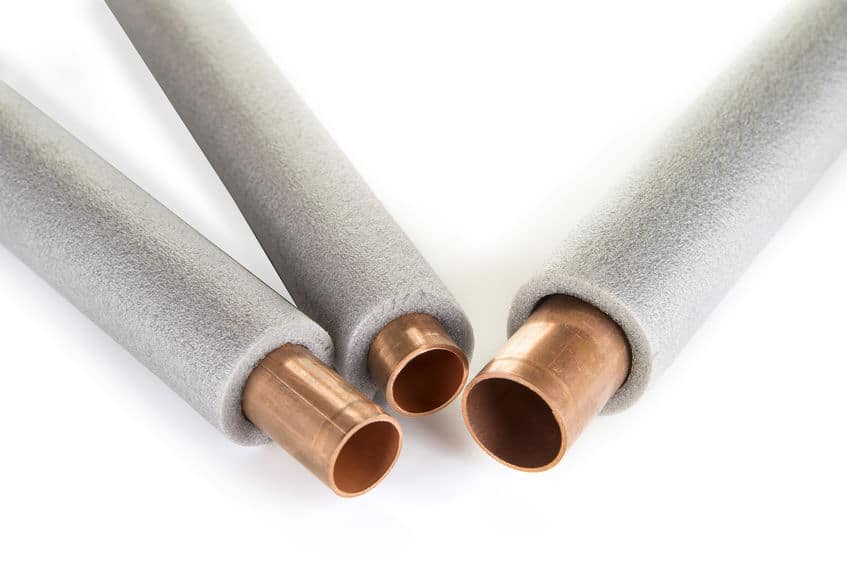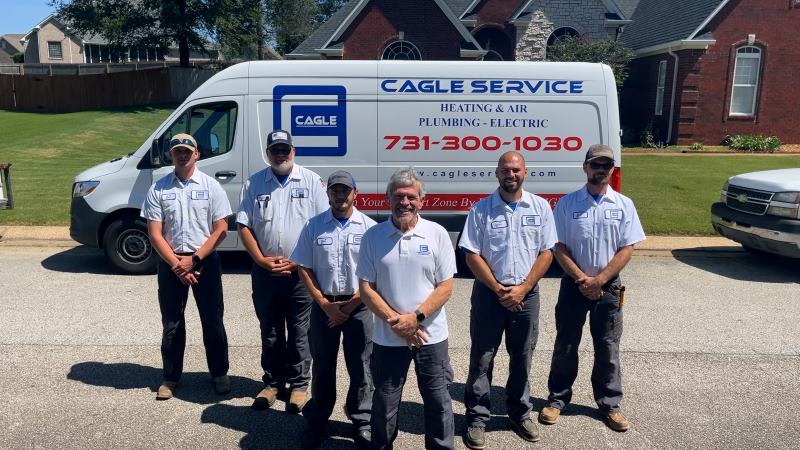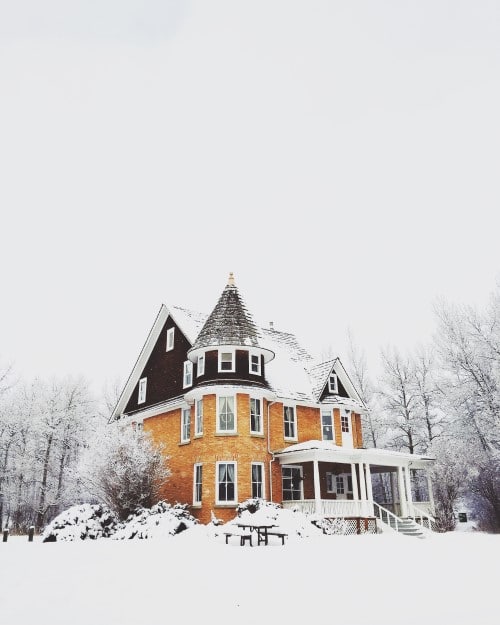In the South, we don’t have to worry about temperatures falling below freezing too much, but it does happen. We do have times when the temperatures can drop into the 20’s and even lower at times. In other parts of the country, such as the Northern states, below freezing temperatures are the norm. In both instances it’s important to know how to prepare and winterize your home for these conditions, especially when it is vacant.
Let’s go over some tips that will help winterize your home and also provide you with peace of mind while you are away. After all, who wants to worry about their home while they are enjoying time away on vacation, for example?
1) Do NOT Turn Your Thermostat Off
In the name of saving money, most of us would love to just turn our heating and air systems off while we are away. After all, we aren’t in the home, so why waste the energy and money that comes with letting the system run?
The results of turning off your heating and air system can be catastrophic. If it reaches freezing or even worse, below freezing, outside, then it’s certainly going to affect the temperature inside of your home if the heating system isn’t running. This can equate to frozen pipes which can burst and cause a flood in your home. That is not something you want to return to after a nice vacation.
We recommend setting your thermostat to around 55 degrees (F). 50 degrees is the lowest we’d advise.
This temperature should be adequate enough to keep it from getting too cold inside the home. Remember, pipes that are visible inside the home are not the ones that we are overly concerned about. It’s the ones that are between walls that aren’t directly exposed to the indoor heat, which is why we recommend the higher temperature of 55 degrees.
Related: Best Winter Thermostat Setting to Save Money
2) Turn Off the Water Supply
Next to adjusting the thermostat, turning off the water supply is a crucial step to preparing your house for vacancy in the Winter. If the house is only going to be vacant for a couple of days, it’s feasible just to let the faucets run at a trickle to keep the water from freezing in the lines. But, anything more than that, we recommend turning off the water supply at the main shutoff valve.
To do this, it should be as simple as closing the valve. Typically, if the indicator is inline with the pipe, the valve is open. If it is perpendicular, then it is closed. Once you close the valve, run a sink faucet and see if the water supply slows, and then stops. Once you have established that you have shut off the main water supply, move on to the next step.
Related: 6 Simple Plumbing Tips for Homeowners
3) Open All of the Water Lines
This steps goes along with the previous step. Once you have the water supply shut off, open up all of the water lines that you have access to (sink faucets, showers, outdoor water hoses, etc.). This will drain the remaining water out of the lines. Leave the lines open while you’re gone. This will prevent pressure buildup and allow any excess water to drain out.
4) Insulate Any Exposed Pipes
We’ve taken care of water lines inside the home and within the walls of the home, but what about those pipes that are exposed to the outdoor elements? Pipes that are located in the attic, crawl spaces, garages and basements, for example, are going to be more exposed and affected by the freezing temperatures. It’d be wise to properly insulate these lines, at least the ones you have access to. Properly insulating these exposed lines, along with the tips we’ve already covered, should help prevent any pipes from freezing.
The most common types of pipe insulation products are pipes sleeves, fiberglass pipe wrap, and electrical heat tape.

5) Unplug Electrical Appliances
If the house is going to be vacant for a decent amount of time, we’d recommend unplugging all electrical appliances and products. This includes TVs, computers, microwaves, lamps, etc. This will decrease the chance for a random fire due to electrical causes such as a faulty switch or a menacing rodent.
6) Turn Off and Drain Water Heater – Maybe
If your water heater is located in an exposed area such as the garage, we recommend turning it off and draining the water out via the drain line. Again, if the house is only going to be vacant for a short period of time, then the water heater can probably be left on. But, if it’s going to be an extended period of time and the water heater is exposed, go ahead and turn it off and drain the tank.
By following these tips, your vacant home should be prepared for Winter and you can have peace of mind while you’re away. If you’d like to take it a step further, consider making sure the gutters are cleaned out and unclogged. This will allow any water to drain appropriately and prevent large pieces of ice from forming in the gutters.
What has been your experience with winterizing your home? Good or bad experiences? Do you have any tips to add?
Comment below. We’d love to hear from you!



